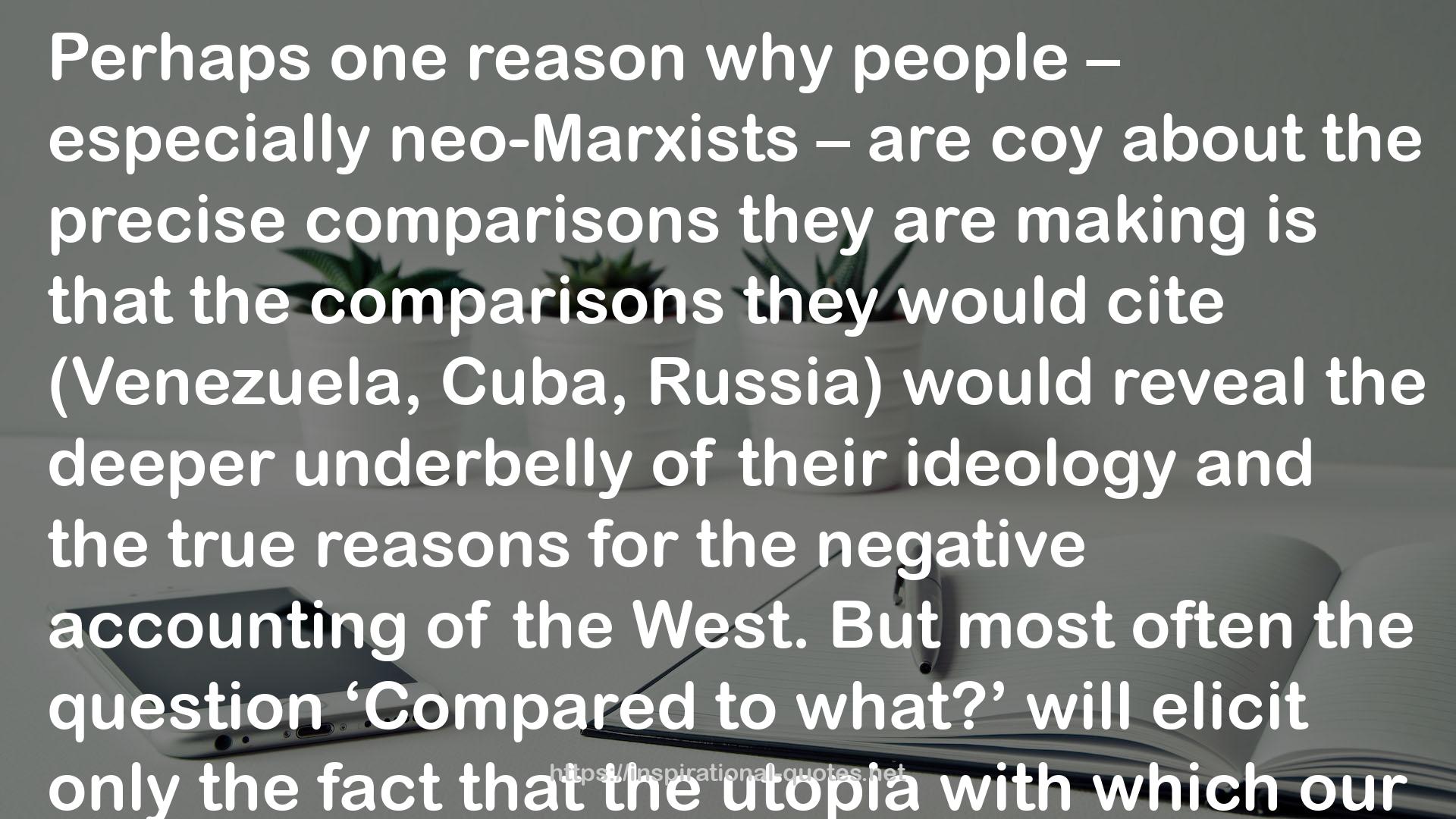29
" One of the ways to distance ourselves from the madnesses of our times is to retain an interest in politics but not to rely on it as a source of meaning. The call should be for people to simplify their lives and not to mislead themselves by devoting their lives to a theory that answers no questions, makes no predictions and is easily falsifiable. Meaning can be found in all sorts of places. For most individuals it is found in the love of the people and places around them: in friends, family and loved ones, in culture, place and wonder. A sense of purpose is found in working out what is meaningful in our lives and then orientating ourselves over time as closely as possible to those centres of meaning. Using ourselves up on identity politics, social justice (in this manifestation) and intersectionality is a waste of a life. We may certainly aim to live in a society in which nobody should be held back from what they can do because of some personal characteristic allotted to them by chance. If somebody has the competency to do something, and the desire to do something, then nothing about their race, sex or sexual orientation should hold them back. But minimizing difference is not the same as pretending difference does not exist. To assume that sex, sexuality and skin colour mean nothing would be ridiculous. But to assume that they mean everything will be fatal. "
― Douglas Murray , The Madness of Crowds: Gender, Race and Identity
38
" The unbelievable speed of this process has been principally caused by the fact that a handful of businesses in Silicon Valley (notably Google, Twitter and Facebook) now have the power not just to direct what most people in the world know, think and say, but have a business model which has accurately been described as relying on finding ‘customers ready to pay to modify someone else’s behaviour’.2 Yet although we are being aggravated by a tech world which is running faster than our legs are able to carry us to keep up with it, these wars are not being fought aimlessly. They are consistently being fought in a particular direction. And that direction has a purpose that is vast. The purpose – unknowing in some people, deliberate in others – is to embed a new metaphysics into our societies: a new religion, if you will. Although the foundations had been laid for several decades, it is only since the financial crash of 2008 that there has been a march into the mainstream of ideas that were previously known solely on the obscurest fringes of academia. The attractions of this new set of beliefs are obvious enough. It is not clear why a generation which can’t accumulate capital should have any great love of capitalism. And it isn’t hard to work out why a generation who believe they may never own a home could be attracted to an ideological world view which promises to sort out every inequity not just in their own lives but every inequity on earth. The interpretation of the world through the lens of ‘social justice’, ‘identity group politics’ and ‘intersectionalism’ is probably the most audacious and comprehensive effort since the end of the Cold War at creating a new ideology. To "
― Douglas Murray , The Madness of Crowds: Gender, Race and Identity

